An Mbuti group in the eastern D.R. Congo has successfully forestalled government attempts to establish a nature reserve that would have prevented their traditional uses of their forests. Instead, they are working with several major NGOs to develop an effective preserve that will include their indigenous rights to use sustainably the forest products. The Guardian published a detailed story about the development last Thursday.
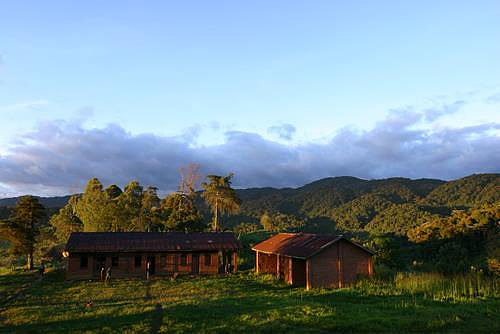
The home range of this group of Mbuti is the Itombwe Mountains, located 60 miles south of Bukavu, the capital city of South Kivu province of the DRC and over 300 miles south of the Ituri Forest where many other Mbuti live. Like so much of the Eastern Congo, the Itombwe region has very poor roads but it also has enormous riches in coltan, gold, and forest products.
The government sought to create an Itombwe Nature Reserve in 2006 with the support of the Wildlife Conservation Society and WWF, to forestall the sort of devastation that has plagued other forests in the Congo. Trees were being chopped down for charcoal; wildlife such as pangolins and gorillas were being hunted out. Irangi, an Mbuti man in his 30s, told The Guardian reporters that people were coming from Bukavu and Rwanda with their weapons and taking everything—trees, animals, anything of value. “Because they have weapons, they believe that they’re above our laws,” he said.
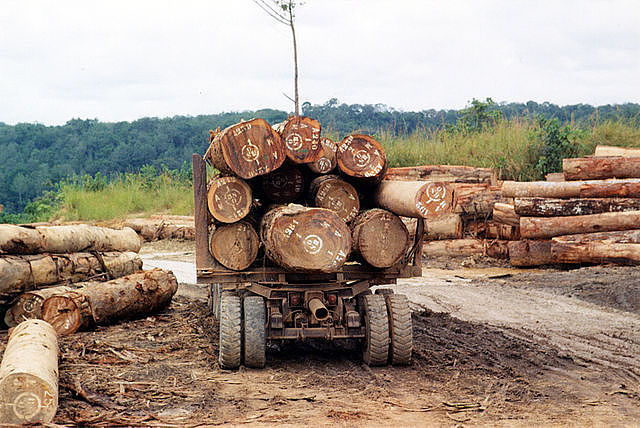
Irangi, who lives on the edge of the Itombwe reserve, castigated the government for allowing the devastation. It hands out licenses to timber the forests to anyone who is able to pay for them. The loggers cut down the trees with impunity. “They cut down our medicinal trees and, with them, the bark and fruits used for our medical treatments. They cut down our caterpillar trees, our oil trees,” he complained.
But the proposed reserve would have prevented all human activity within its boundaries. When the Mbuti in the Itombwe heard about it, they were angry, according to Marie, an Mbuti woman who lives in a nearby village. The forest has provided the needs of people for millennia. “If you found out that the place where you gather and hunt your food, where you find your medicines, where the resting place of your ancestors is located, was to be taken … would you be happy?” Marie asked. “We were afraid that they would steal all of this from us. So we met and decided: we’re not going to let this happen.”
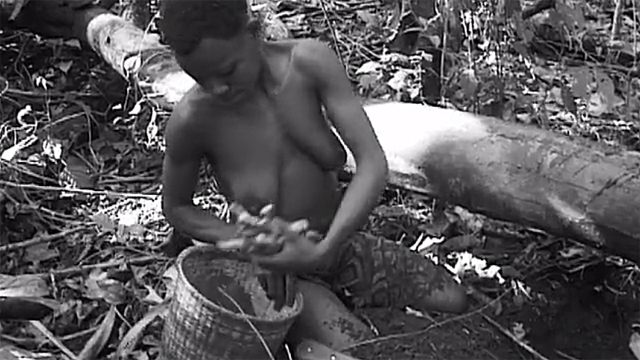
Irangi and the others were quite aware of what had happened to another Pygmy group, the Batwa, who used to live as gatherers and hunters in a forest 120 miles to the northwest of them. But in the 1980s, their forest was designated as the new Kahuzi-Biega National Park. The nearly 6,000 Pygmies living within the borders of that park were expelled from their villages and had to find new ways to obtain food, without any support from the government. They learned to survive doing farm work or other kinds of manual labor without any access to their traditional sources of foods.
The Mbuti activists started protesting the creation of the Itombwe reserve. They blocked the entrances to the forests, their protests catching the attention of the government as well as international organizations that promote indigenous rights. The proposal to establish the reserve was stopped. In 2008, the international conservation organizations and the government started negotiating with the Mbuti.
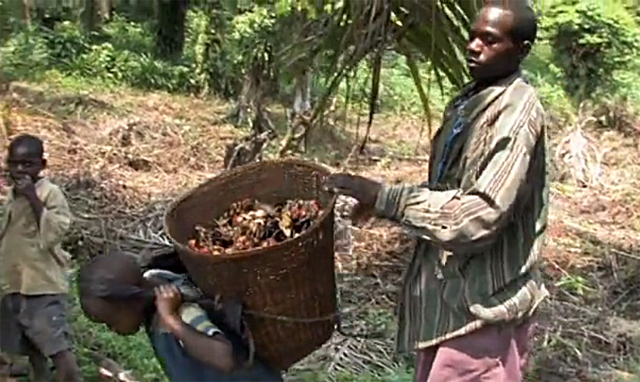
The Mbuti were determined that the degrading conditions that had overtaken the Batwa around Kahuzi-Biega would not happen to them. But mutual suspicions stood in the way. At first, WWF viewed the Mbuti as enemies, people with whom they couldn’t even talk, according to Bitomwa Onesiphore Lukangyu, an employees of WWF. But those attitudes have changed. The two groups realized that they share a common goal: to protect the Itombwe forest. “So we’ve started to work together. To create the reserve together,” Mr. Lukangyu said.
The collaboration seems to be paying off. In June, the government recognized officially the boundaries of the new reserve, which were decided with the input of the Mbuti. The Guardian observed that, while cooperating with local indigenous groups that have lived in their forests for millennia might seem obvious, such collaborative projects have been mostly quite superficial. But this one represents the first really cooperative park development in Central Africa. The international aid organizations have the funding to help the governments protect large areas, but the local people have the knowledge about how to conserve the forests most effectively.
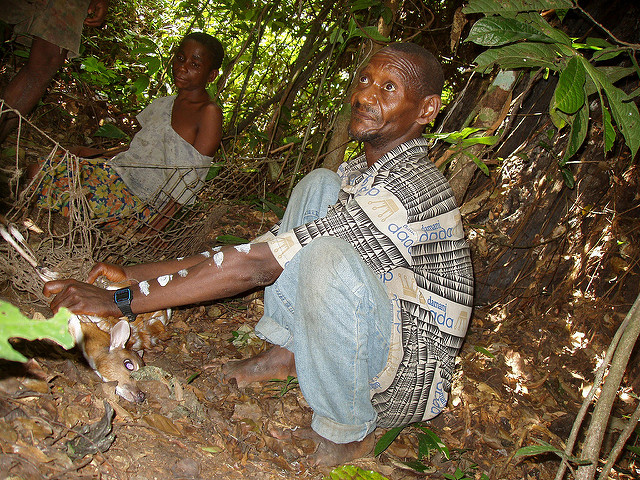
Mapenzi, a young Mbuti hunter, told the reporters “We know how to protect our forest because nobody knows it the way we do. We know where the animals give birth, where they sleep and during which periods one must never kill them.” He said that he knows all the traditional methods of hunting, and he is clearly proud of the fact that he was trained by older guardians of Mbuti customs. “I know the sites and the periods for hunting and fishing. During the dry season, we don’t hunt, because the animals give birth.”
The young hunter captured the attention of the reporters when he spoke so forcefully about Mbuti approaches to conservation. “We have our own traditional conservation technologies. The animals that the modern law wants to conserve are already under our customary protection,” he asserted.
He went on to speak about the ways the rules of their society control what they do. If you violate the rules by setting a trap for an animal next to the river where it goes to drink, the guardians of their customs will sentence you with a muzombo, a form of excommunication. The members of the Mbuti Pygmy group believe the punishment is effective so they respect the rules, The Guardian concluded. It appears from the report in the newspaper as if future generations of at least this one Mbuti group will continue to cherish their forest-based traditions.